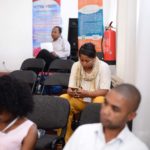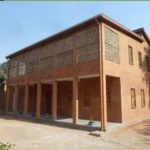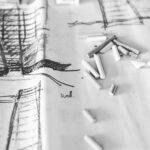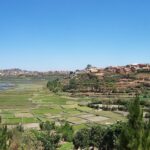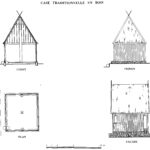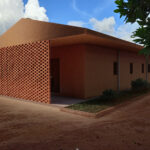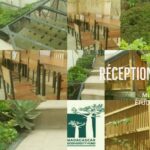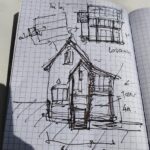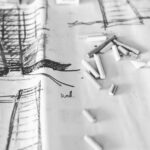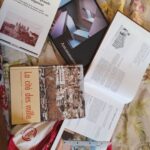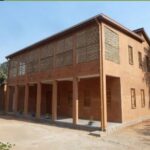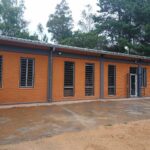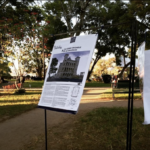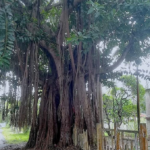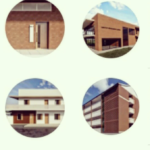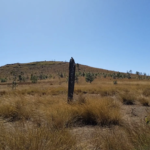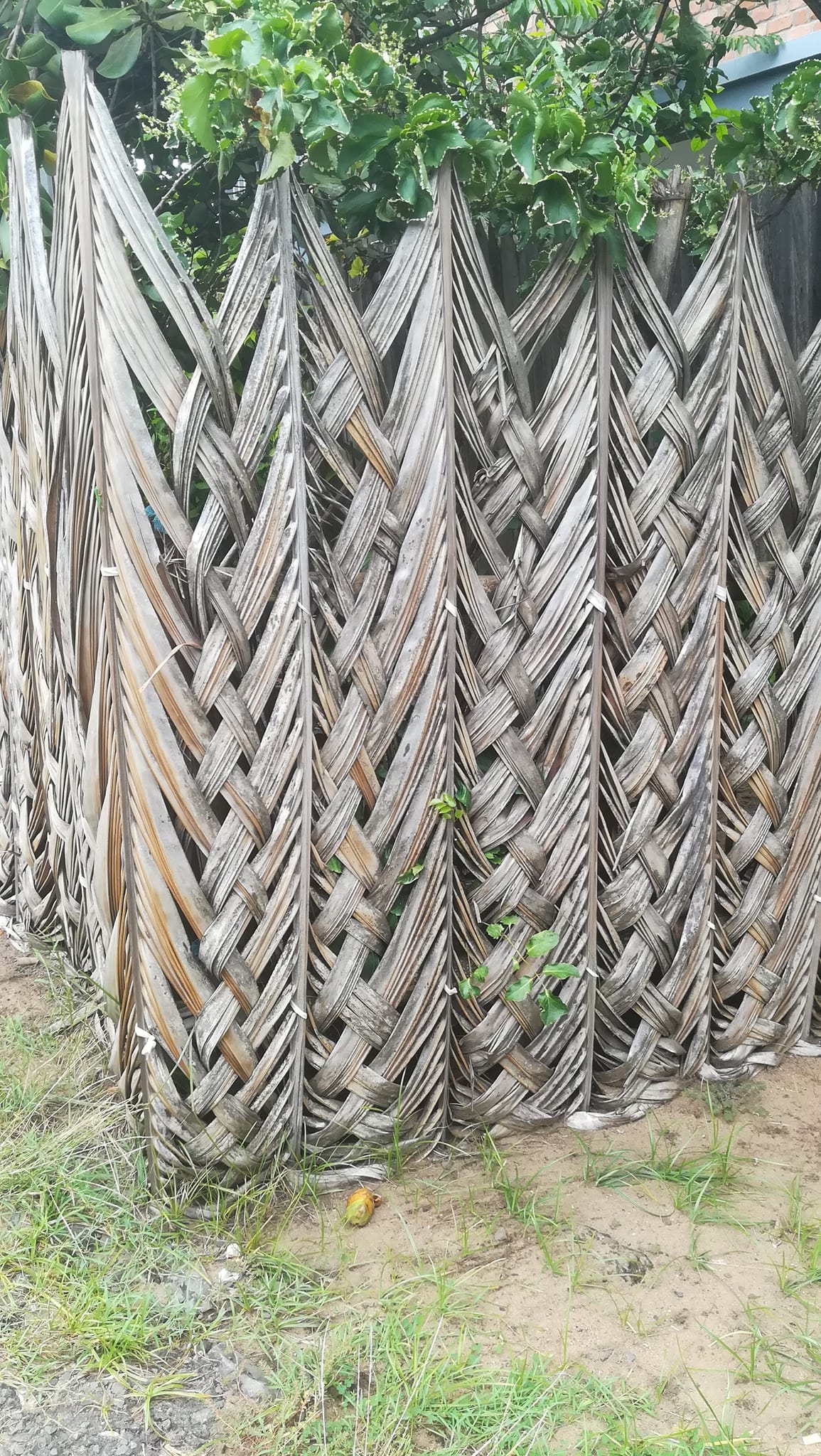
I am still half way through Michele Rakotoson’s Ambatomanga book and since I needed more background informations specifically regarding Malagasy past on Slavery and our fights against any kinds of colonization, I ended up NOT finishing her book but also got entangled into the most amazing human social adventure possible.

I began the journey in the Indian Ocean by discovering the amazing work of Françoise Verges on how NOT easy it was to institutionalize “remembrance” and work together as communities to strengthen our common paths and processes to heal Slave Trade scars. https://www.facebook.com/jogany/posts/pfbid07CBx7ZMvVrXXLdPwCcSGfgSpnK12rjLzANcudnTQpTQvhDn824pYCgSv3PbtYTWVl
Of course I came back to Gwyn Campbell’s body of work altogether and it helped give a more contextual knowledge on how many parties were involved in the trade. I mean. Just read ONE of them. It will not be enough to make you become a scholar but you’ll get easily addicted to anything related to Indian Ocean and he also has a podcast channel :
https://www.youtube.com/channel/UCd7T_p-XZ6R_3RnUGAAQCpQ
Then I discovered there was a whole community of Afro-American which ancestors have been identified with Malagasy DNA. So I introduced myself with this :
Hi all,
I am very happy to meet you. I did not specifically intend to get involved in this adventure, although I was always a little curious of this dark side of our common past. Also I seem to be very smart in researches and investigations, whether in my field, architecture or in history this time.
First I want to put you in context socially speaking and explain how the question of finding your roots in Madagascar is going to be very complex. We experienced a trauma a few weeks ago that echoes other tragedies that take place far from the city and therefore far from our attention. A village in the Analamanga capitale region was attacked on the night of July 29. Thirty people, including women and children, were burned alive by the Dahalo (mainly cattle thieves). Madagascar has not experienced war since 1896, but 80% rural population is living through a muted civil war punctuated by long political and economic crises. And above all : Kere, famine is lastingly impacting our large southern regions.
I’m telling you about this right away so that you realize the gap between our 2 communities. On one hand you find descendants of “takalom-basy” (currency for firearms) and on the other a population that just never left the stage of feudalism very familiar with that when your ancestors left the island. Of course, Madagascar experienced Modernity. As a Sovereign State although composed of various enemy kingdoms whose cohabitation was unified by language and practices, it then suffered 60 years of French colonization whose scars are still anchored in our unconscious and our governance. Even if we were given our Independence in 1960, until today the country has never been able to exceed the level of the poorest countries in the world.
If I made the personal choice to return home after 13 years in Canada where I practiced as an architect, I did so to participate actively in the development of my country. I think, with humility, that somewhere I can make a change at my level. If our paths cross it is also because I have noticed that History is part of our work and several taboos have not allowed the Malagasy to move forward towards progress. You will have read everywhere in your researches that we are a society made up of ethnic groups and castes. Your ancestors and ours lived together in a social climate similar to that of Kere, the Dahalo and this quasi-medieval feudalism where corruption is as endemic as our unique biodiversity in the world.
Not being a historian by training, nor a researcher by profession, I will share my findings with you and I would like to aim to help you find your origins. In Madagascar you will experience reluctance because of ignorance and scare. We are currently learning to live with our ghosts and above all ( and I do not think that you are aware of it) we need to admit that our families had all directly or indirectly participated in the slave trade. In 2022, “mpiharam-bodirindrina” (neighbors who share the wall) could come from different castes of society, and as we are the country of “silence and pain”, they live together without talking about its cruel past. Domestic slavery was still ongoing way into the colony and to be simply put : most ancient masters still live on the same land as their ancient slaves.
One day, a generation will know how to make things right and go up one Vatolahy after one Vatolahy towards remembrance, pardon and for sure will drive us towards progress. But for now we all have to go through a few tears and struggles.
As you know, already, Madagascar population are mixed Bantu from Africa and Banjar from Austronesia. You will know soon but the Malagasy who left the island before the 18th century come from specific regions. Your ancestors were sent to West Indies and Virginia colonies but a bigger group was kept in South Africa and Mascareignes, Mauritius and La Réunion. You guessed : these descendants are also starting their own researches and making great progress on their side as well.
From few assumptions and little researches I made, it will not be of enormous complexity to find the villages your are from as long as the job is led very rigorously even scientifically. Indeed, the foko between them have not moved much in 4 centuries and I have no doubt that if you cannot find surnames, you could appropriate the first names which just have not changed. Somehow I tell myself above all that you are also going to teach us how to become better citizen. As you live in developed country and because of your families secular battles to strive for better lives.
Here in Madagascar, we burn our endemic forests, we kill our unique lemurs and above all we are losing our exceptional fomba and culture. By learning the language, the songs and love our children same as yours, you will be able to show our people that there are better choices to be made. We will change the path Malagasy people are heading towards and build bonds together that will last and grow.
Thank you for reading this very long introduction thread I just improvised. I suggest to better organize us to set up a very small committee (if it is relevant) that I too will compose with Malagasy friends interested to connect. Also it is better to contact each other by email and Whatsapp for future communication. In the meantime, I invite you to get to know me better in order to recognize my good faith and learn about my little wanderings in the country. I remain available to assist you within the limits of the means and time I have.
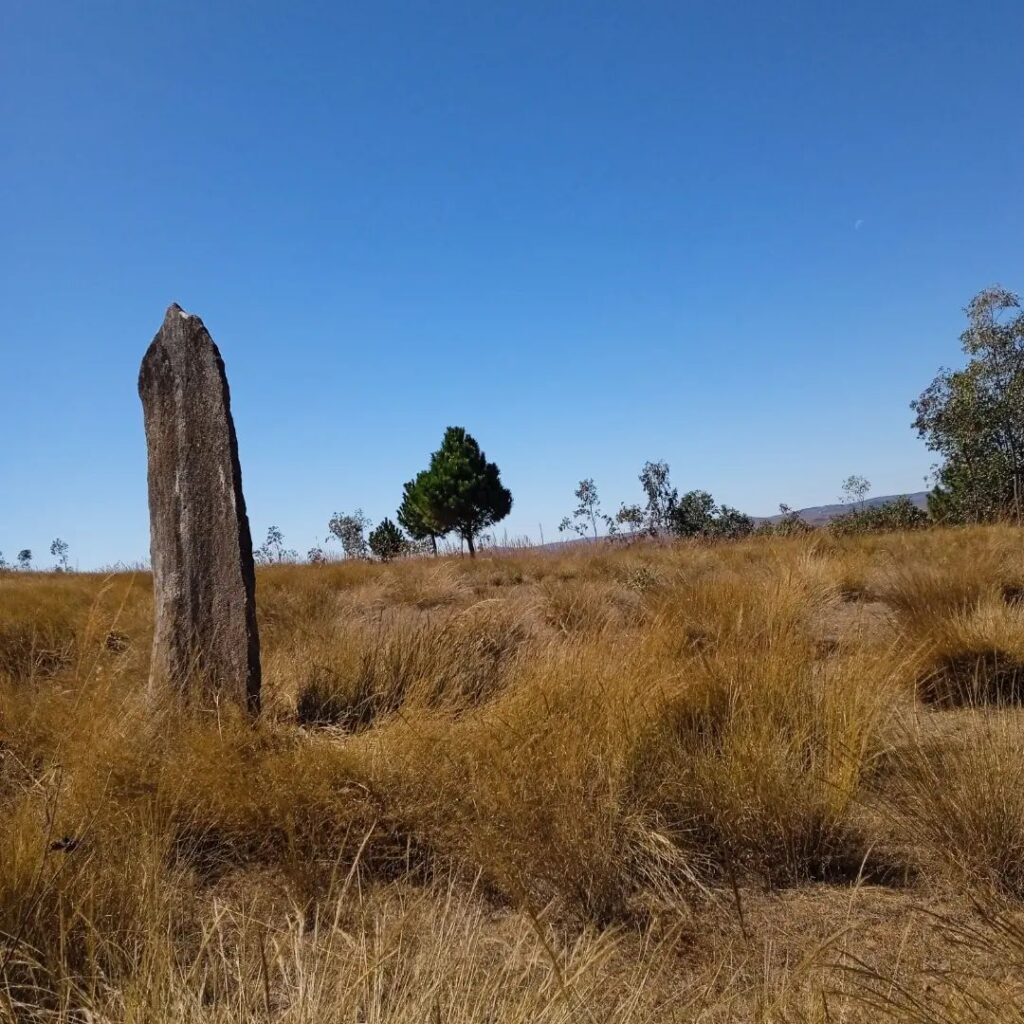
Vatolahy or Tsangambato : monolithic stone to commemorate loved once who never came back (killed during battles or stolen for slave trade). You can find stones this way all over Betsileo and Imerina hilled lands.
It went well for a very cool 2-day even though I felt like being interviewed for some Jeopardy trivia game while my non-expertise backed by intensive googling profile was challenged at every comments. This very short lived experience ended few minutes ago with a very weird exchange I share below so you can be a very neutral judge of what is going on some people’s mind. Of course this person should not reflect badly on this nice community but this conversation was too strange and also invasive enough to make me leave the private group so that I could focus more on people connecting by emails….who at least are respectful of my good faith.
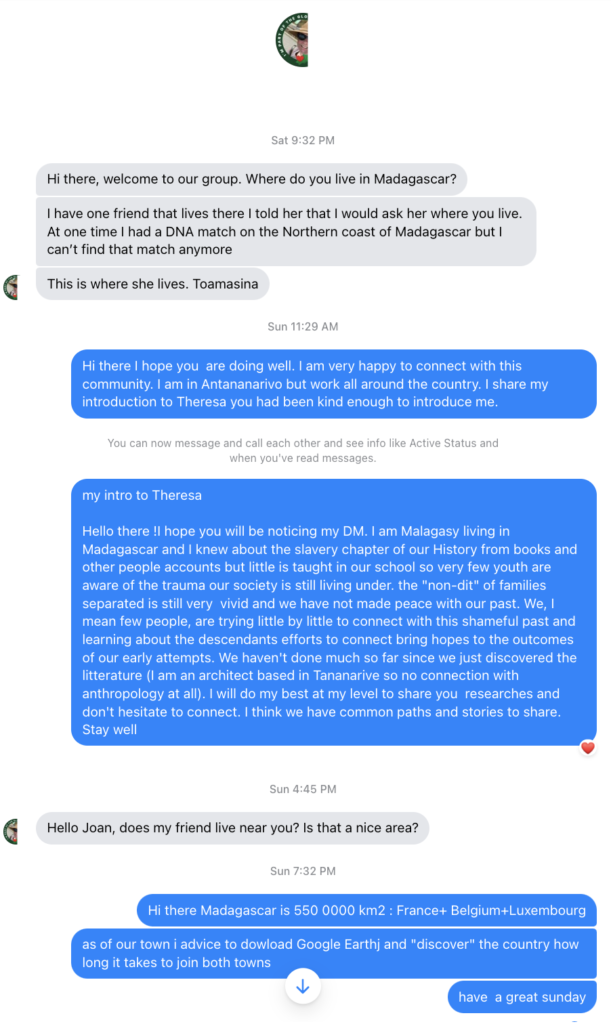
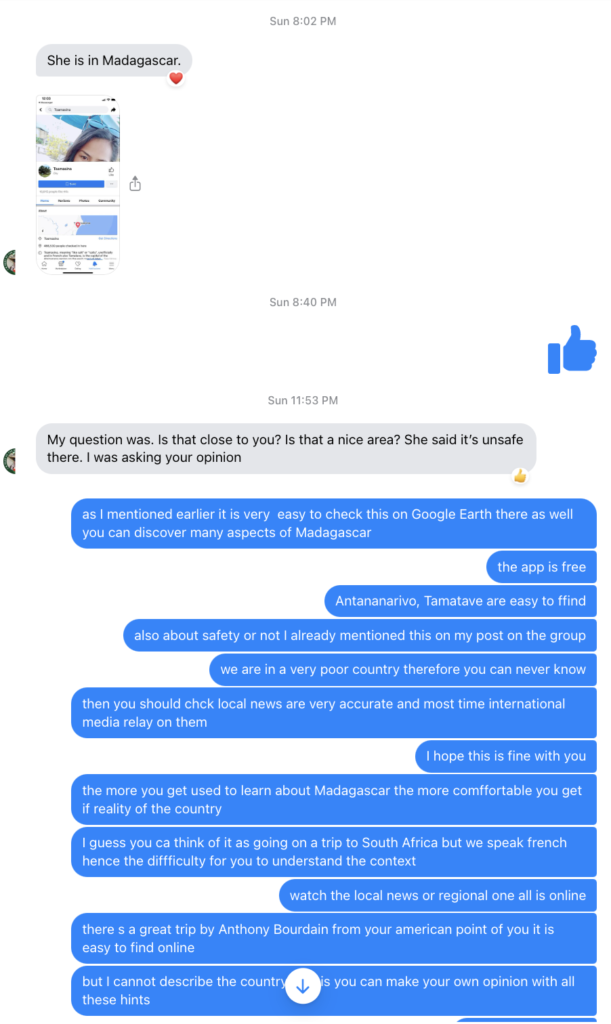
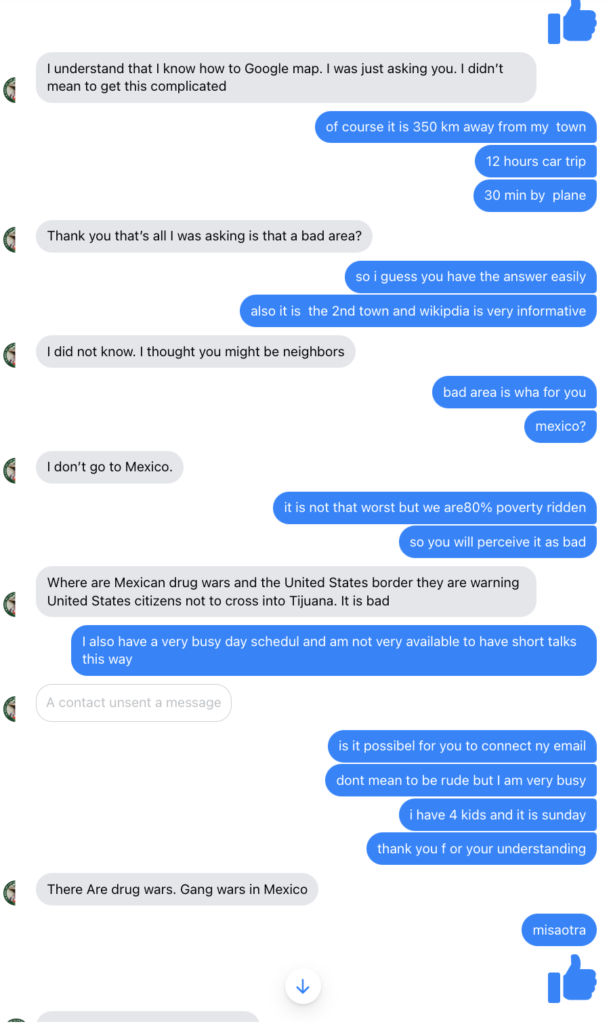
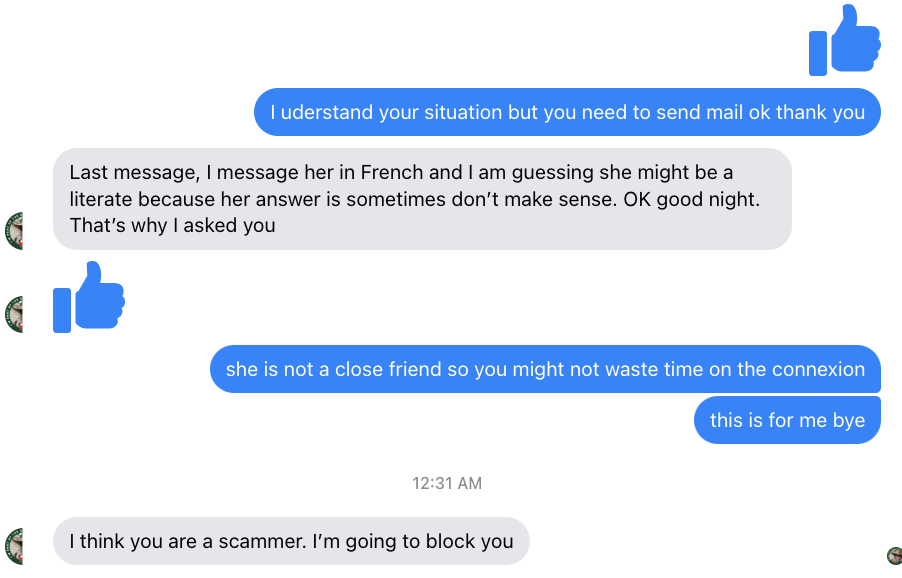
so let see where all this is heading us.


